Have you ever found yourself concerned about sensitive information slipping through the cracks? If so, you're not aloneânavigating the waters of confidentiality, especially in business, can be tricky. A non-disclosure agreement (NDA) is designed to safeguard your proprietary information, but what happens when that trust is breached? Join us as we explore the critical steps to take in the event of an NDA violation, and ensure your valuable secrets remain just thatâsecret.

Introduction of Agreement Terms
A non-disclosure agreement (NDA) establishes a legal framework between parties, emphasizing the protection of confidential information shared during business dealings. This agreement typically includes specific clauses outlining the definition of confidential information, duration of confidentiality obligations, and the consequences of unauthorized disclosure. For instance, parties may agree to keep trade secrets, proprietary data, or sensitive client information confidential for a defined period, often ranging from one to five years. Violations of these terms can lead to significant legal repercussions, including monetary damages, injunctions, or even criminal charges, depending on the severity of the breach. It is crucial for all parties involved to understand these terms thoroughly to protect their interests effectively.
Description of Violation
A non-disclosure agreement (NDA) violation occurs when confidential information, outlined in the agreement, is disclosed to unauthorized individuals or entities. For instance, sensitive trade secrets related to a company's proprietary technology, such as algorithms used in software development, are often protected under NDAs to prevent competitive disadvantage. If an employee shares these details with a competitor, it constitutes a breach of trust, potentially leading to legal repercussions. This breach can also endanger client relationships and result in financial loss, as proprietary information is critical for maintaining a competitive edge in the market. The process for identifying such violations typically includes monitoring communications, conducting internal audits, and investigating suspicious activity within an organization. Retrieval of confidential information improperly disclosed can be challenging, often requiring legal action to mitigate damages.
Reference to Consequences and Penalties
A violation of a non-disclosure agreement (NDA) can lead to severe repercussions for the offending party, particularly in business environments. Consequences may include financial penalties, which can range from a few thousand dollars to millions, depending on the sensitivity of the disclosed information and the extent of the breach. Legal action may also be pursued by the disclosing party, resulting in costly litigation fees and potential court-ordered injunctions that could prohibit further disclosures or usage of the confidential information. A breach can irreparably damage professional reputations and business relationships, particularly in industries dealing with proprietary technology, trade secrets, or client data. In high-stakes sectors such as pharmaceuticals or software development, the ramifications may include loss of competitive advantage and diminished market value. Additionally, repeat violations can lead to criminal charges, including fines or even imprisonment, highlighting the serious nature of maintaining confidentiality as outlined in the NDA.
Demand for Rectification
In the context of a non-disclosure agreement (NDA) violation, a specific incident may involve the unauthorized disclosure of confidential business data, such as proprietary financial reports or product designs. This breach, potentially affecting companies like Google or Apple, can severely compromise competitive advantage and intellectual property. The offended party typically seeks immediate rectification, demanding actions such as cessation of further disclosures and return of all proprietary materials. Clarifying that strict enforcement of the NDA, often verified by legal frameworks like the Uniform Trade Secrets Act, is essential to preserving corporate integrity and mitigating damages. The affected entity may also consider pursuing legal recourse if the situation is not promptly addressed, underlining the significance of protecting sensitive information within the technology and business sectors.
Reminder of Legal Implications
A non-disclosure agreement (NDA) violation can lead to serious legal repercussions for involved parties, impacting business relationships significantly. Breaching such agreements may result in financial penalties, with damages sometimes exceeding thousands of dollars based on the severity of the breach. Confidential information, may include trade secrets or proprietary data specific to companies like Apple or Google, must remain secure to protect competitive advantages. Legal action often ensues, with potential lawsuits filed in jurisdictions such as California or New York where many tech companies operate. Additionally, violators may face reputational damage, causing long-term impacts on future partnerships and contractual agreements within the industry.

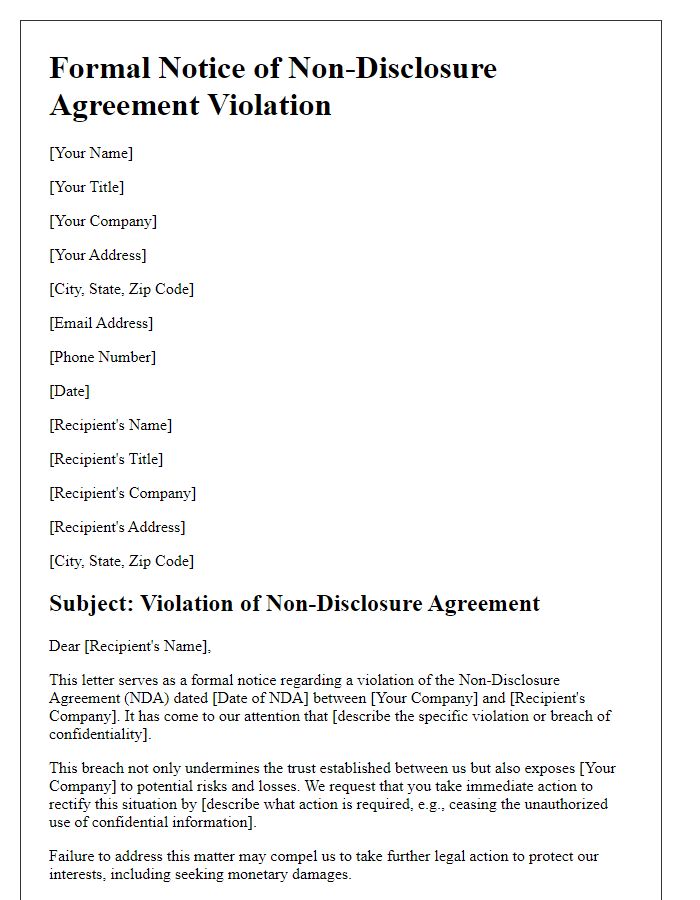
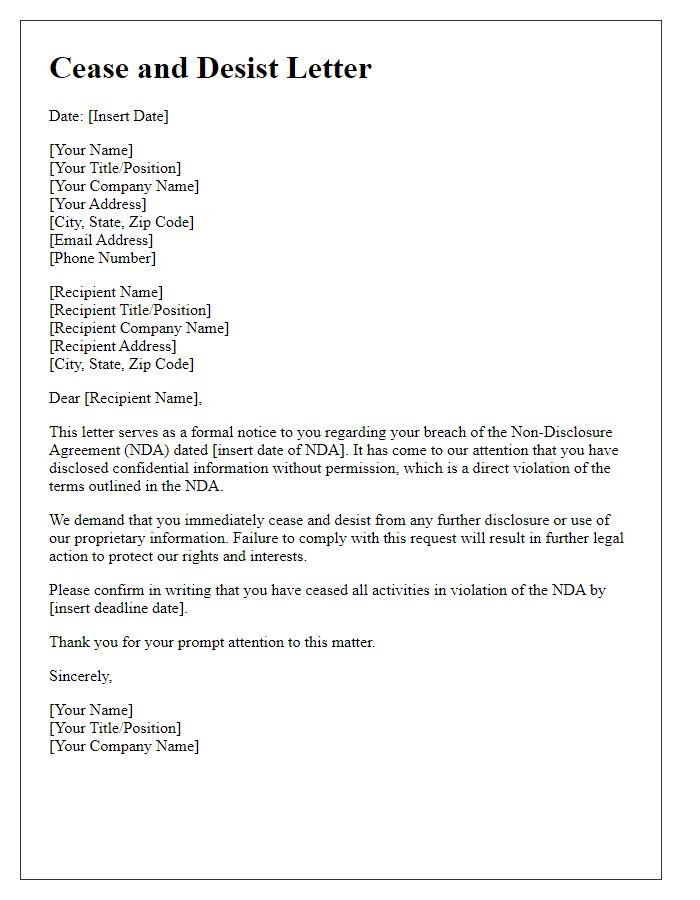
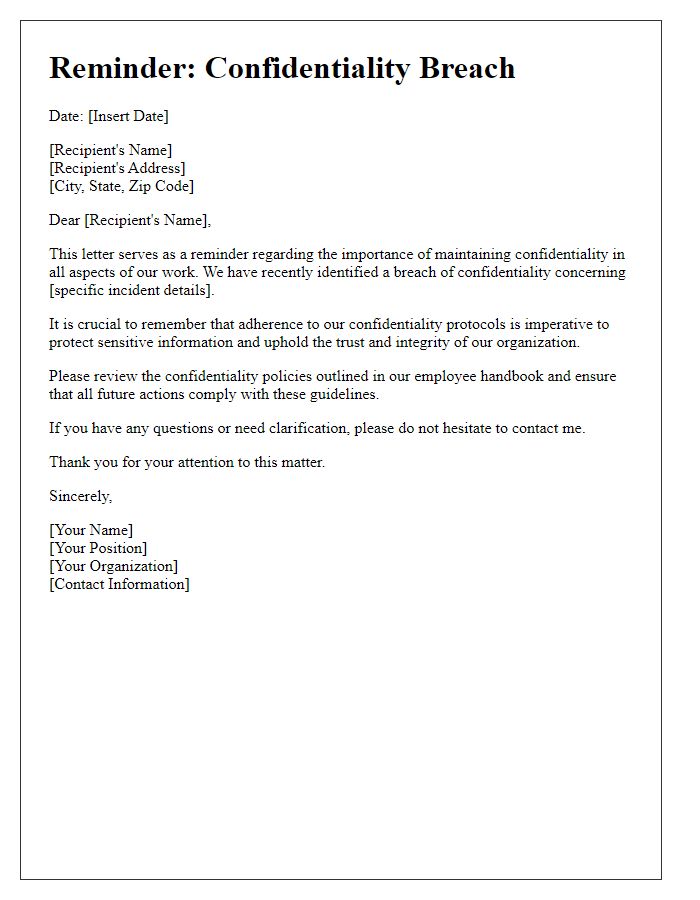
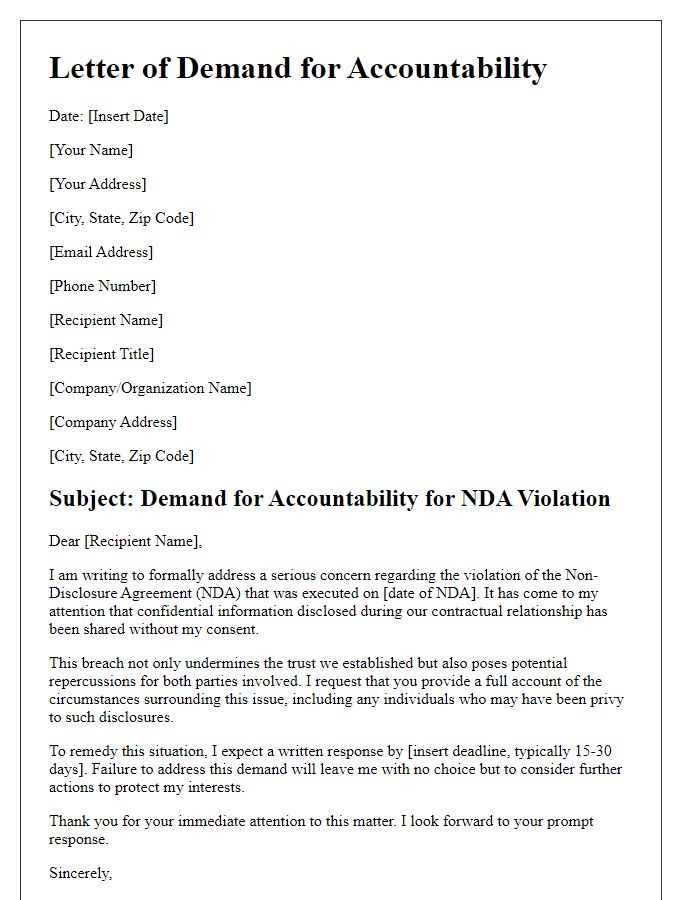
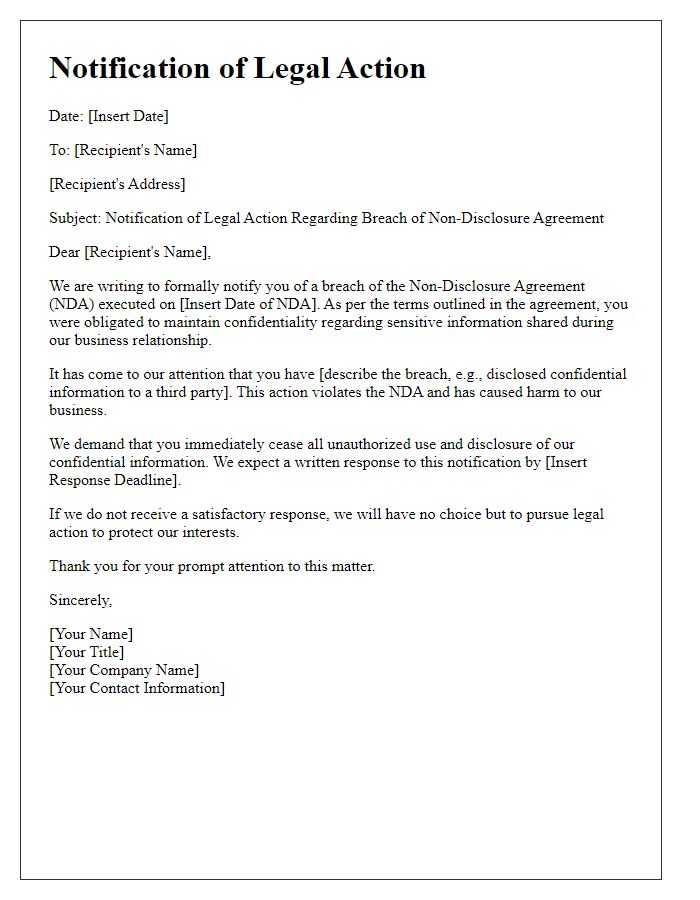
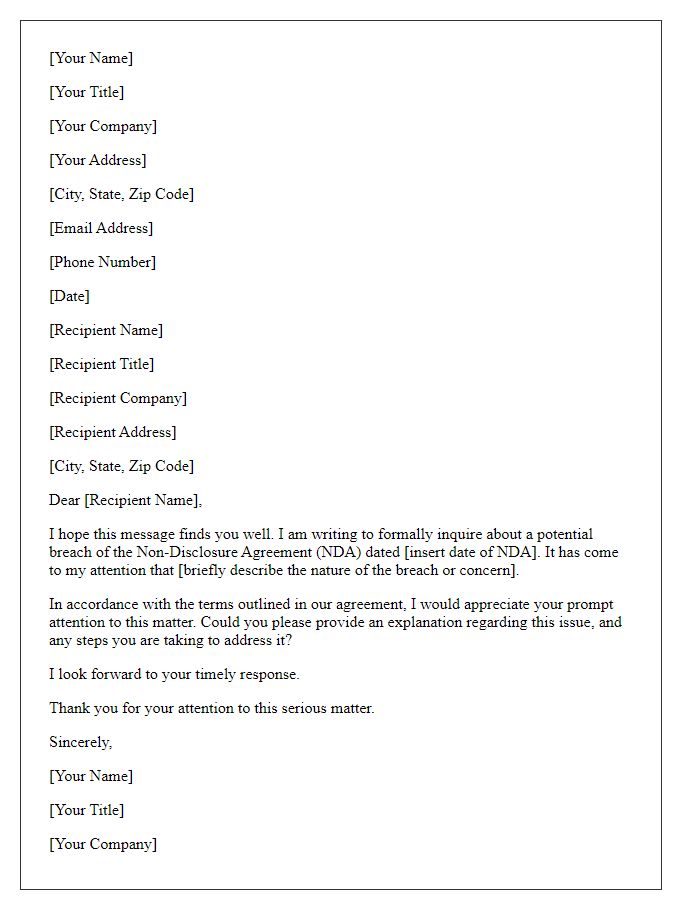
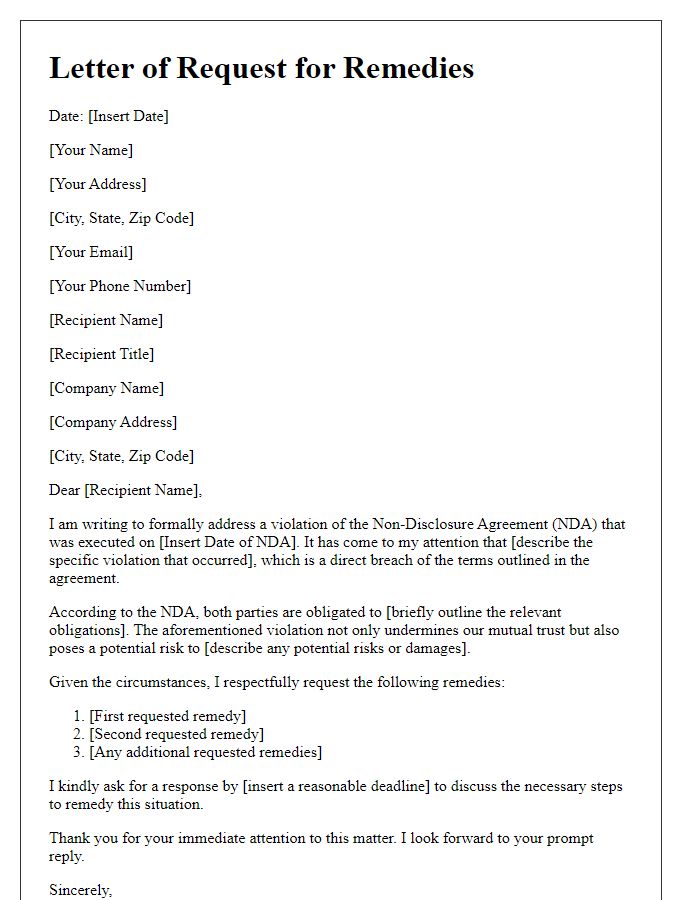
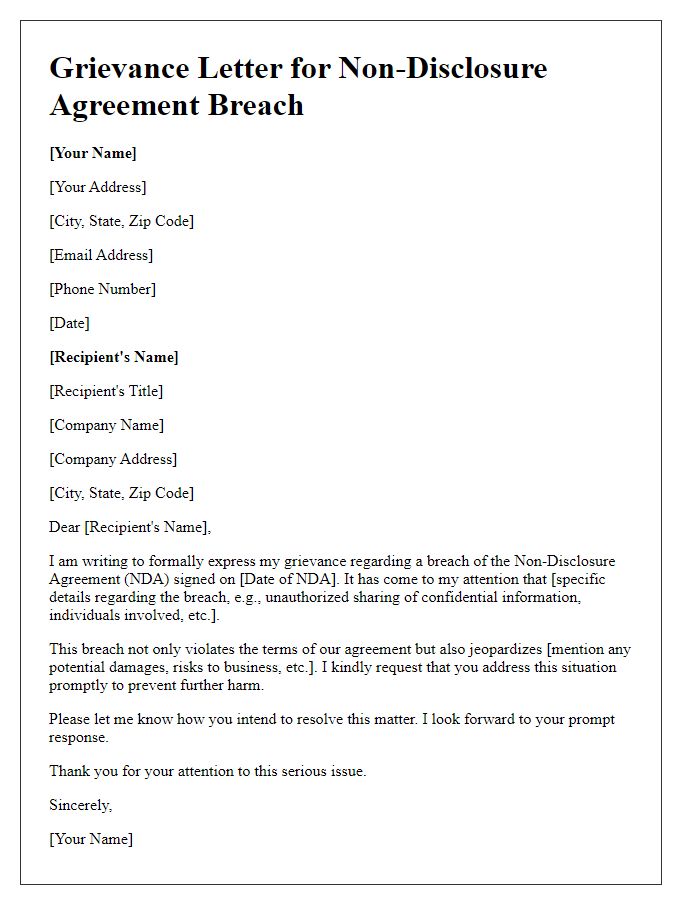
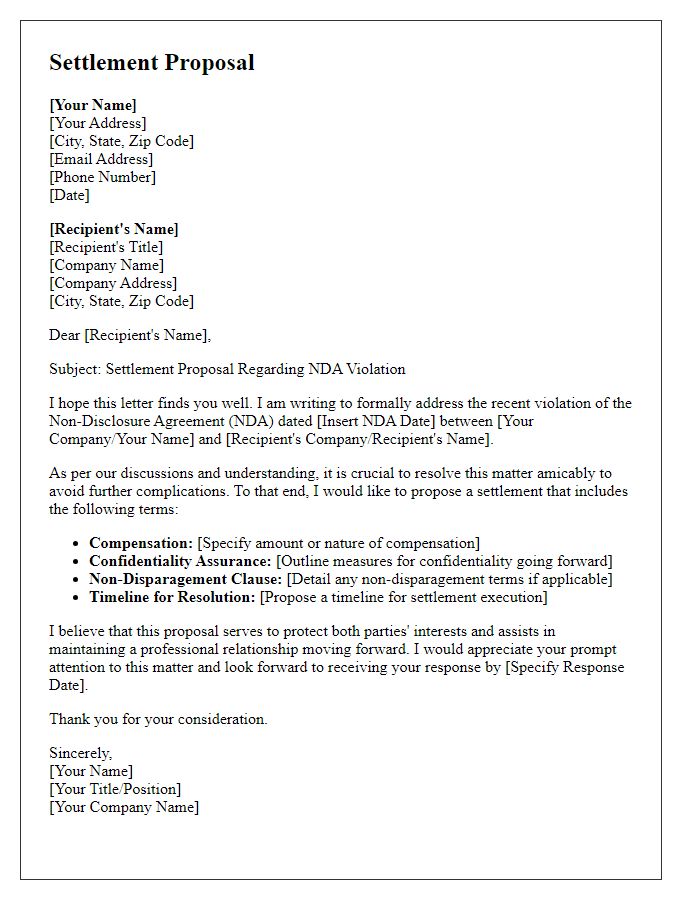
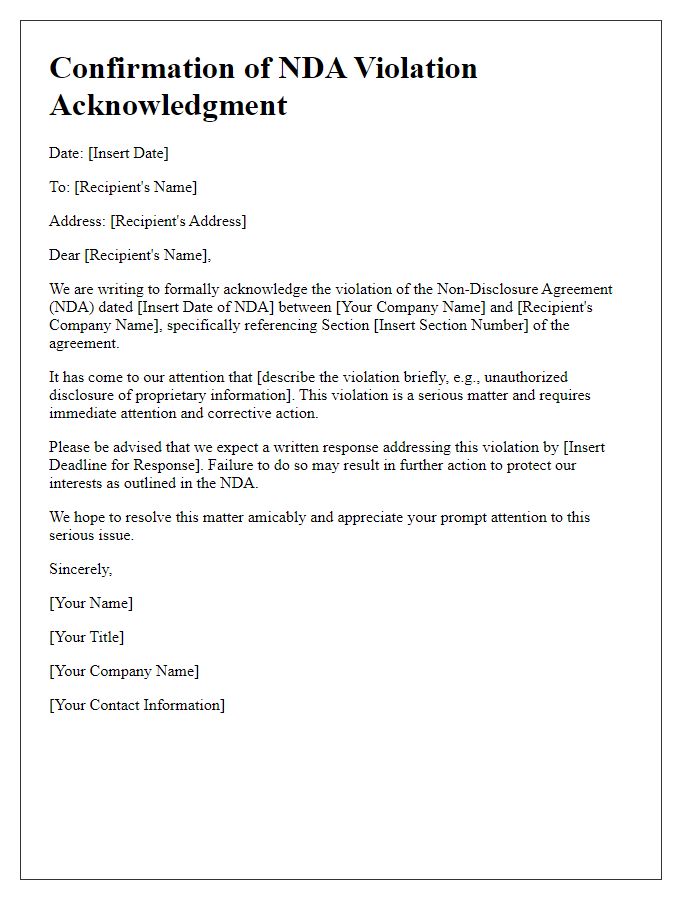


Comments